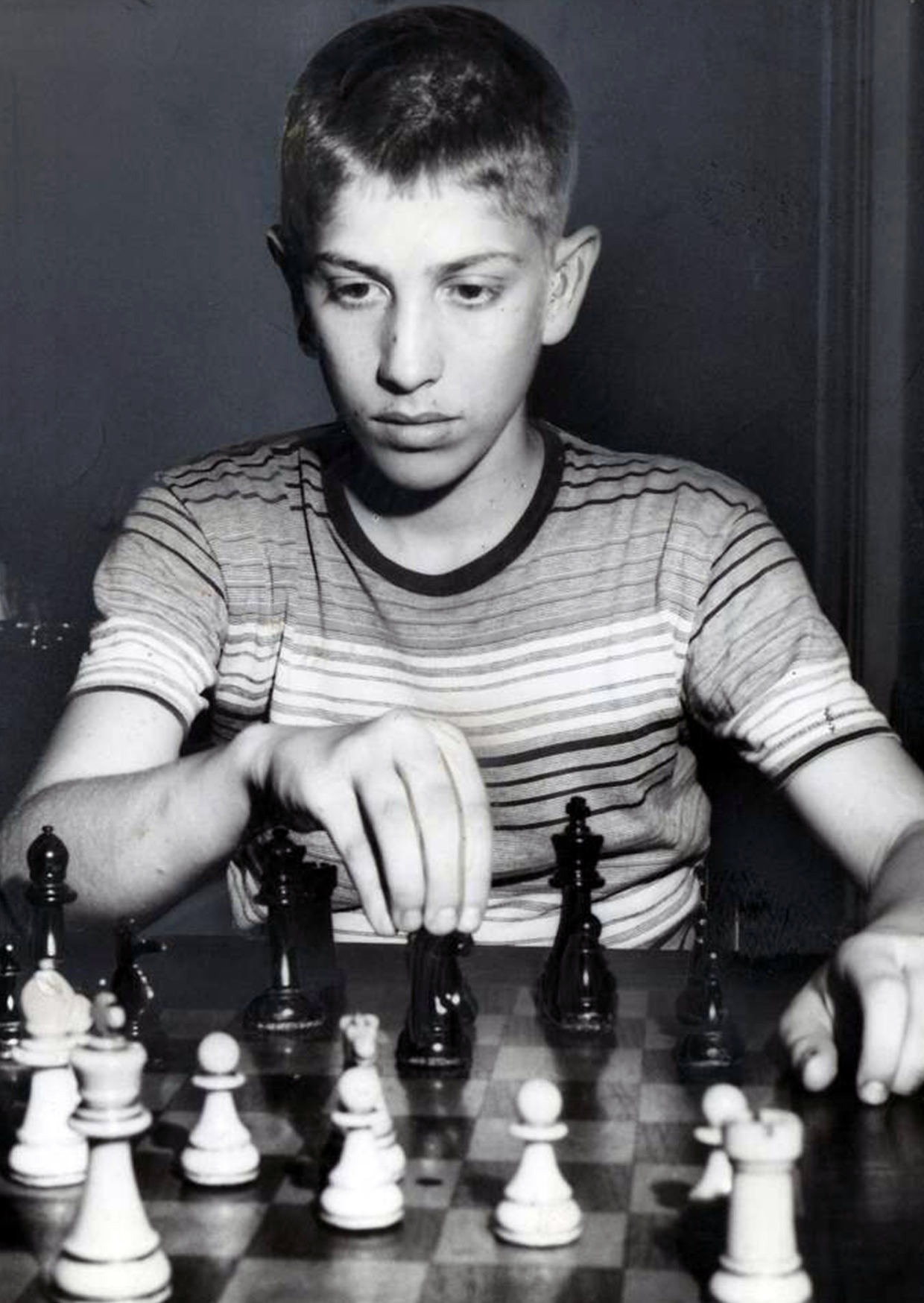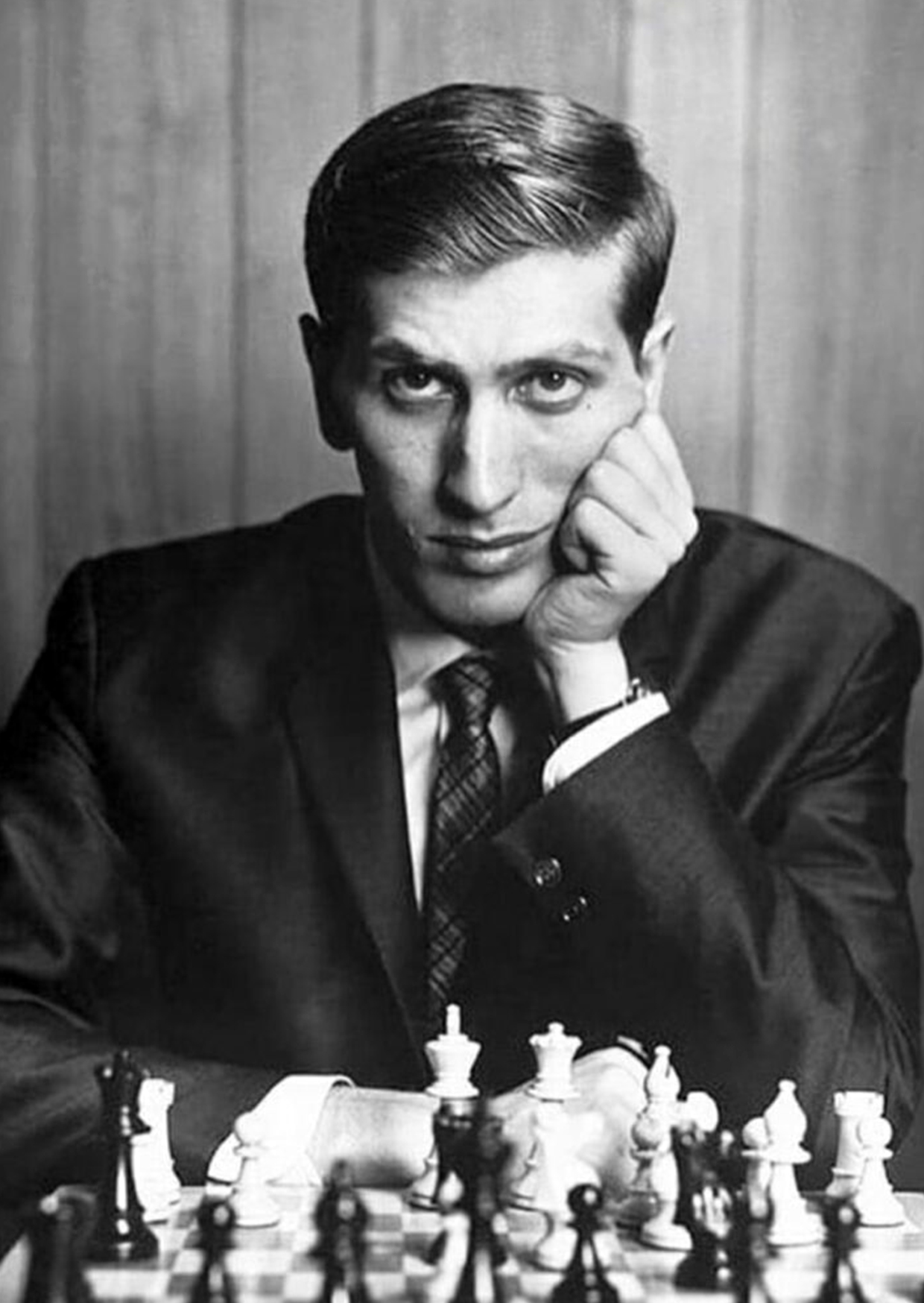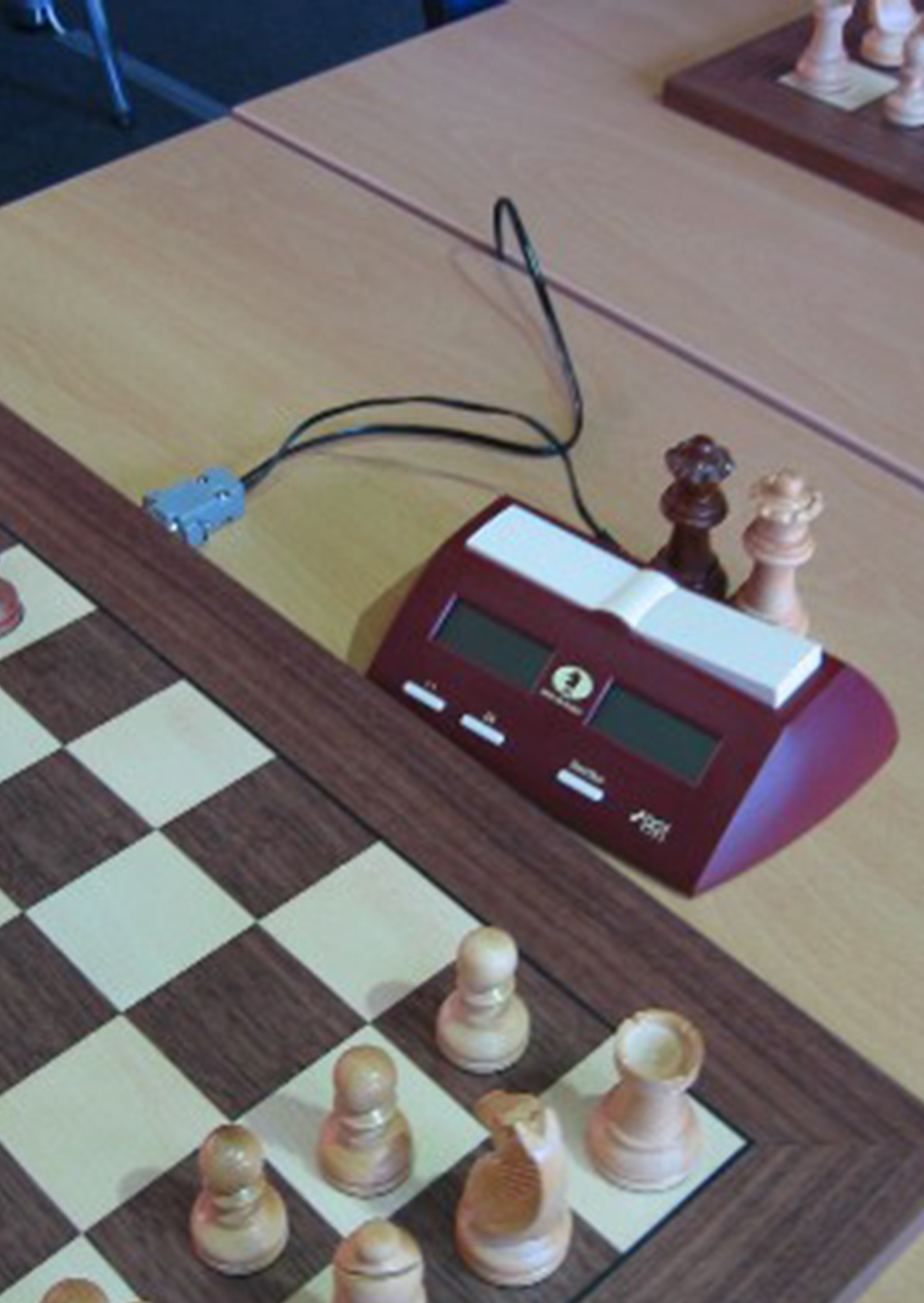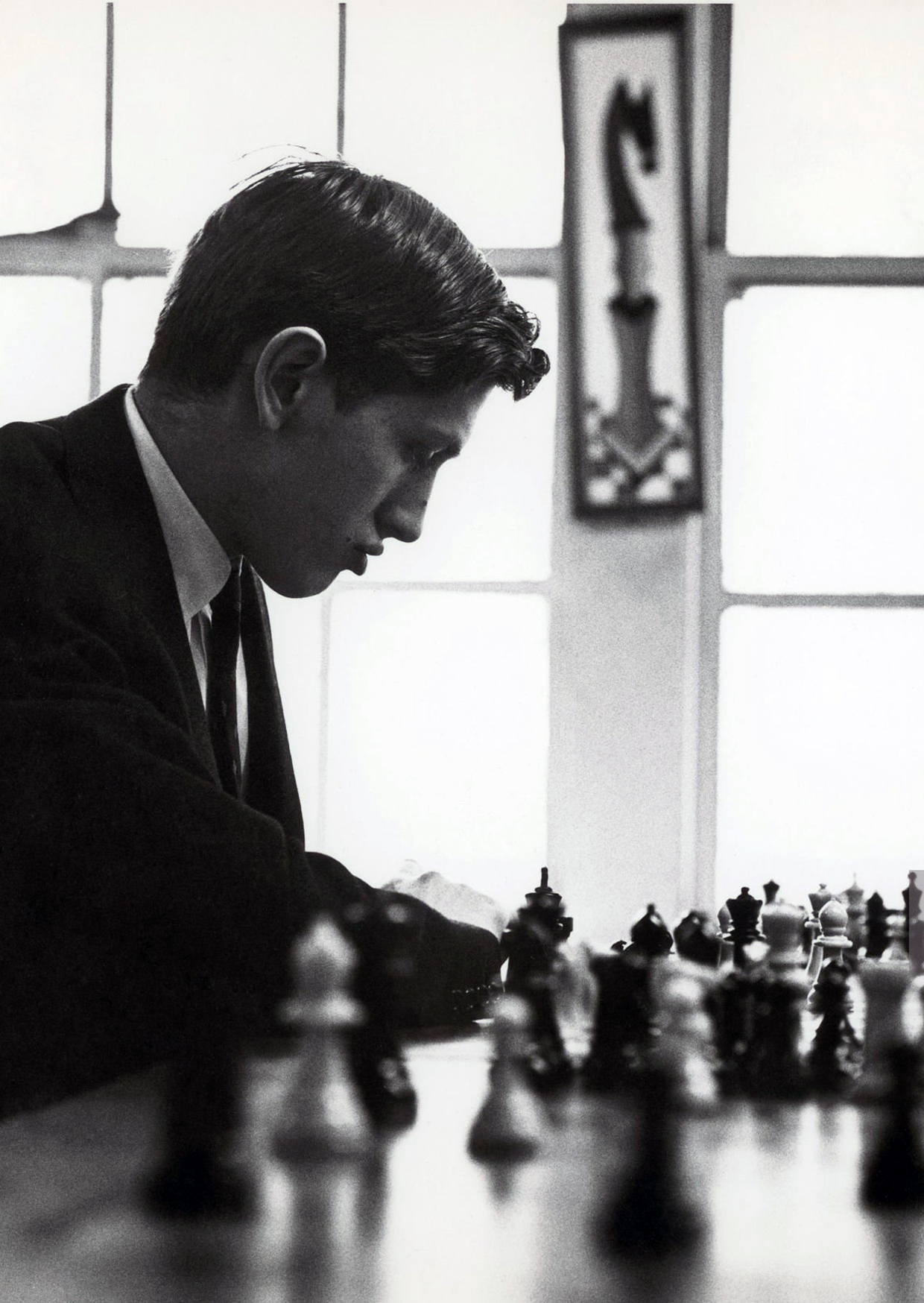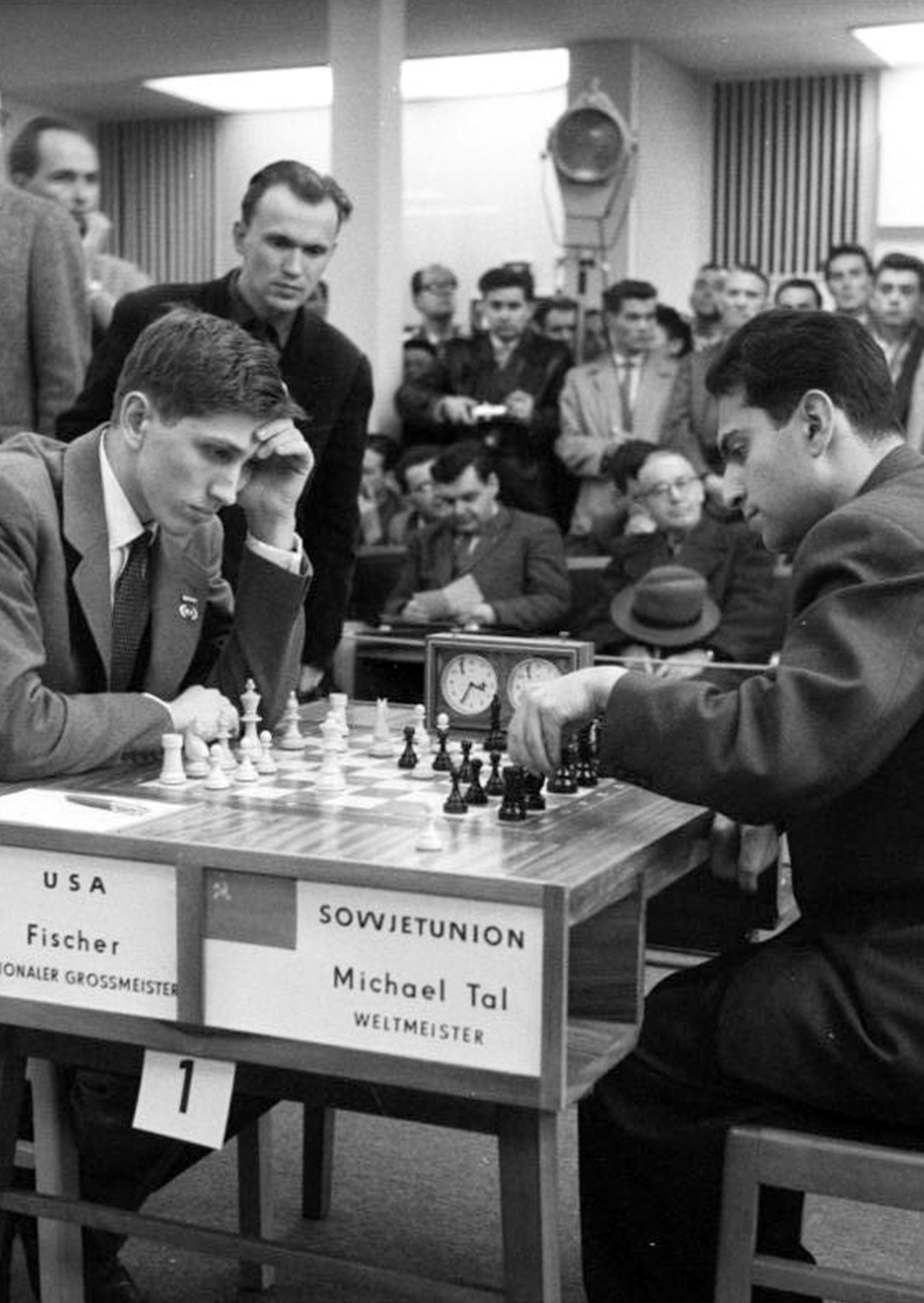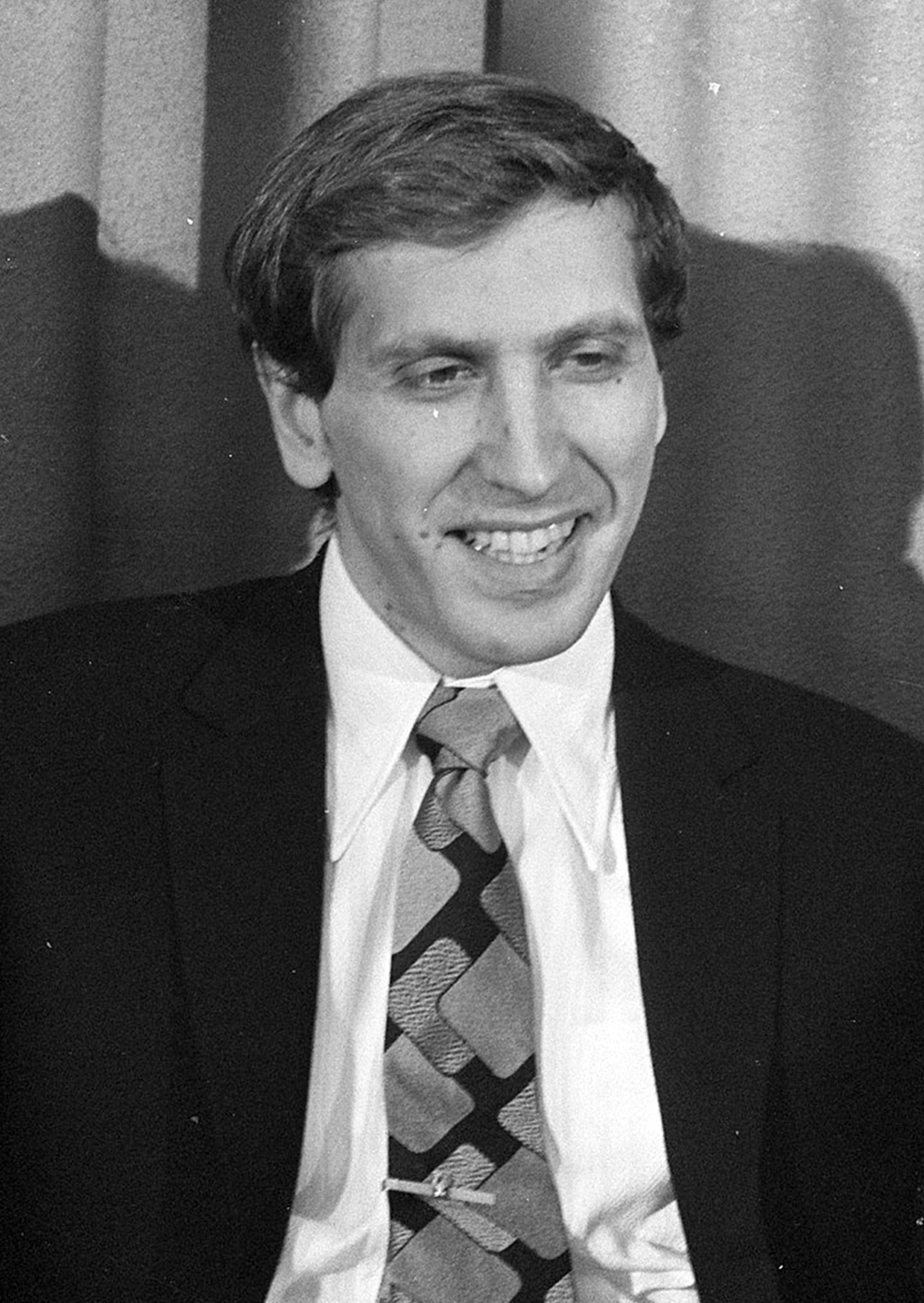1943
He was born Robert James Fischer in Chicago on the 9th of March. His mother was Regina Wender, a nurse of Polish origin. According to his birth certificate, his father Hans-Gerhardt Fischer , a physicist of German origin.
1945
His parents divorced early, and his father left the United States permanently, leaving Bobby and his sister Joan behind. They moved with their mother first to California, then to Arizona, and later settled in a house in Brooklyn where Bobby grew up.
1949
They moved to New York, where Bobby received his first chess set from his sister at the age of six, and Joan taught him the basics of the game.
1951
At the age of eight, he was already taking lessons at the Brooklyn Chess Club and soon started to play competitively.
1955
At the age of twelve, he was considered one of the strongest players in America, who were meeting regularly at the Manhattan and Marshall Chess Clubs. His adult opponents called him “robot boy” and “corduroy killer” because of his classic wardrobe and unquenchable will to win.
1956
At the age of thirteen, he became the youngest player to win the United States Youth Championship. In the same year, he achieved his first notable success when he defeated Donald Byrne in what The Chess Review magazine called”The Game of the Century”.
1957
At the age of fourteen, he was the youngest player ever to hold the U.S. Chess Championships title. Impressively, in his thirteen matches against America’s best players, he has not lost a single game, winning eight and drawing five.
1958
Breaking the record of Boris Spassky, who became Grandmaster at the age of eighteen, Fischer earned the highest qualification in the game at the age of fifteen. His record lasted 33 years, when Judit Polgár finally broke it by one month.
1959
He left school at the age of sixteen because it took too much time away from chess.
1960
By the early sixties, the always cocky boy’s confidence had grown so much that he told Harper’ s magazine: “Women cannot be good chess players.”
1964
He won eleven games against Grandmaster Larry Evans in the United States Championship. In the same year, he played another legendary game against Grandmaster Robert Byrne, who was eventually forced to resign. The result was so unusual that it baffled even the grandmasters who analysed the games.
1968
He took a break from competitive chess and wrote his book My 60 Memorable Games, which is still considered one of the best chess books of all time.
1970-71
Fischer won 20 consecutive games in the World Championship Candidates matches before losing once and drawing three times against former World Champion Tigran Petrosian of Armenian descent.
1972
His youthful eccentricity and aggressive yet brilliant play brought chess to the attention of the American public, especially when Fischer defeated Soviet Boris Spassky to win the World Championship title in Reykjavik, Iceland.
1975
He refused to sit down against his Soviet challenger, Anatoly Karpov, and the International Chess Federation stripped him of his title and declared Karpov World Champion. Fischer then retired from the game for nearly twenty years.
1992
His retirement was only briefly suspended when he faced and defeated Spassky in an unofficial rematch in Yugoslavia. Since Yugoslavia was under a UN embargo at the time, Fischer’s trip was in violation of a decree issued by President George H.W. Bush. To avoid prosecution in the US, he spent the rest of his life in exile. He lived in Yugoslavia and the FRG, then spent eight years in Budapest.
2008
The first and only US world chess champion in history died of kidney failure on 17 January. He was exactly as old as the number of squares on a chessboard. He was laid to rest in the cemetery of Laugardælir in the village of Selfoss, a small village of thirty people, surrounded by his closest friends. His memory is preserved a few hundred metres away by the Bobby Fischer Centre, a small non-profit biographical museum.
Which was the „game of the century”?
Bobby Fischer is considered one of the greatest and most famous chess players of all time. He first came to prominence in 1956 with a stunning victory over twenty-six year old Donald Byrne, the brother of Grandmaster Robert Byrne, in the Lessing J. Rosenwald Trophy in New York, the most important invitational tournament in the country at the time. On move 17 Fischer sacrificed his queen to Byrne to launch a devastating counter-attack which resulted in a checkmate. It is worth noting that Bobby was only thirteen years old at the time. The Chess Review, a monthly chess magazine published in New York, called the encounter the”game of the century”.
How did he become a grandmaster?
In preparation for the Zonal tournament in Portorož, Fischer played a few matches in Yugoslavia. The 1958 championship involved 21 players, and the top six qualified for the 1959 Bled-Zagreb-Belgrade tournament, with the provision that no more than four players from any one country could qualify. Mikhail Tal scored a sensational victory with 13.5 points to defend his first place and qualify for the Zonals stage of the World Championship qualification. Svetozar Gligoric was second with 13 points, Pál Benkő and Petrosian shared third with 12,5 points, Olafsson and Fischer fifth with 12 points. By finishing in the top six, Fischer qualified for the Candidates’ Tournament and at the age of fifteen became the youngest player ever to reach this stage of the World Championship cycle. For Fischer, qualifying for the Candidates’ Tournament meant clinching the grandmaster title.
Fischer has filed a patent for a digital chess clock
The advent of digital watches and internet games has set off a wave of more varied and complex time checks than traditional standards. One particularly notable development was proposed by world champion Bobby Fischer, who in 1988 filed a patent for a new type of digital chess clock. Fischer’s digital clock gave each player a set amount of time at the start of the game, and then added more time after each move. This method of timekeeping is sometimes called “bonus”, but is usually called “increment” or “Fischer”. The clock was first used in the unofficial Fischer-Spassky match in 1992, but it quickly became popular in the chess world and was used in the 1998 FIDE World Chess Championship. Today, Fischer’s system is used in most top-level tournaments and competitions outside the United States.
Bobby Fischer had an IQ of 181
A discerning person of narrow interests but great intellectual gifts, Fischer was a demanding personality – charismatic by some, merely infuriating by others – who felt that his proficiency in chess entitled him to privileges. He demanded unconditional loyalty from his supporters and concessions from his opponents. He expected special treatment from tournament organisers and undivided respect from the rest of the world. His vision became more distorted over time. He complained that they were trying to poison his food, that his hotel rooms were bugged. He became afraid of flying because he thought the Russians might hide traps in the plane. He played less and less, fuelling rumours that he feared defeat; but he always came back to play at a level that no one could compete with.
Fischer, the world chess champion
His success against the Soviet chess empire of the 1960s and 70s would go down as one of his most incredible individual achievements. The competition received huge publicity. The Soviet Union clearly dominated chess, with every world chess champion since the end of World War II being a Soviet. The Fischer-Spassky match thus became a metaphorical battle of the Cold War. Arthur Koestler, reporting from Reykjavík, Iceland, described the tense match as follows: “It’s strange to be a war correspondent again after all this time.” Fischer’s 180 centimetre height and broad-shouldered, tailored suit cast an imposing figure. At first he insisted on television coverage, but later refused to play in front of the cameras. He lost the first game, and forfeited the second, driving the tournament organisers to despair. In the end, he defeated Spassky by brilliant play with a margin of 12.5-8.5 to win the tournament with the biggest prize fund in history at that time, $250,000. When he played with white, he would practically always choose the same opening. His victories came from surprise attacks or counter-attacks rather than from accumulating small advantages. Bobby Fischer has become a legend: the American who beat the Russians at their own game. During the match, he allowed Life reporter Brad Darrach to do an article about him for the magazine. However, the article was followed by a biography, Bobby Fischer vs. the Rest of the World, which portrayed the world champion as a monomaniac and a monster, who immediately filed a lawsuit, which he lost.
The mysterious Bobby Fischer
Fischer was both the most powerful and the most mysterious American player in history. Having reached the height of fame, he has periodically quit chess, losing money and friends. He turned down huge financial offers, including a $1.4 million offer from the Hilton Corporation to defend his title in Las Vegas. Fischer also refused to face his Soviet challenger, Anatoly Karpov, and the International Chess Federation stripped him of his title and simultaneously declared Karpov the official world champion. Bobby Fischer then disappeared from the chess scene for 17 years. In 1992, he returned for a $5 million rematch against his former opponent, Boris Spassky. The rematch of the 1972 World Championship was billed as the World Chess Championship, but it was only an unofficial clash. The games were played in a surreal atmosphere in the Yugoslav resort of Sveti Stefan. Fischer won the rematch by a landslide, and after his victory proclaimed himself “the undefeated world champion”. For Spassky, the match was his last challenge and he did not play in another World Championship cycle; similarly, Fischer did not play in any more tournaments after the match.
1943.3.9 – 2008.1.17


